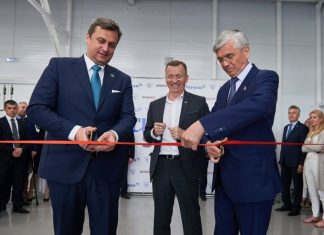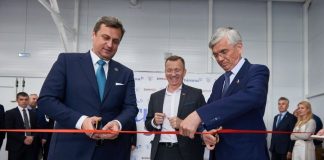Authors: Katarína Drevená, Peter Dubóczi, Štefan Ižák
The report focuses on the identification of key disinformation narratives that were present in the Slovak information space during December 2022 and January 2023, while also focusing on the narrative of “Ukrainian fascism”, which can be considered one of the main pillars of propaganda trying to justify the Russian invasion of Ukraine. It concludes by offering a set of recommendations aimed at countering disinformation in the form of strategic communication.
The full study can be found below.
Key findings:
- High energy prices have become one of the main disinformation narratives, with pro-Russian actors trying to convince the audience that the only reason for such price increases is the EU sanctions imposed on Russia. Similar rhetoric is being spread, in particular by Milan Uhrik and other politicians from the far-right spectrum.
- In recent weeks, one of the most widespread pro-Kremlin narratives has been the claim that while Russia calls for peace, Ukraine, along with the West, desires war. In particular, disinformation actors have exploited Moscow’s offer of a Christmas ceasefire, which Ukraine rejected. The disinformation actors are adopting the propaganda of Moscow, which has tried to use the ceasefire to build its image as the defender of Christian values.
- The fear and insecurity mongering through the narrative that the West is trying to get into a direct conflict with Russia has gone so far that disinformation actors have exploited long-established military exercises. By manipulatively informing about this routine matter, they have given the impression to a significant part of the population that a mass mobilisation in Slovakia may soon take place.
- The narrative of “Ukrainian fascism” is one of the fundamental frameworks through which pro-Kremlin propaganda channels portray events in Ukraine. The narrative has been at its peak since the beginning of the full-scale Russian invasion of Ukraine on 24 February 2022. Even before that, this narrative has served to legitimise the war in the Donbas.
- To achieve enhanced narrative legitimacy, pro-Kremlin propagandists exploited historical excursions, often referring to representatives of Ukrainian radical nationalism and their actions (both real and fictional) from the 1930s to the 1950s.
- In Slovakia, the narrative is used to undermine support and solidarity with Ukrainians among the general public, which could also influence political decisions. It also contributes to efforts to discredit both Slovak and Western politicians who support Ukraine in its defence against the aggressor.
- Slovak information space in terms of generating interactions on social media is dominated mainly by political actors. They are particularly successful in the effectiveness of communication. The high sentimental colouring of the content is particularly evident in the case of the “Ukrainian fascism” narrative.
- The list is dominated by Ľuboš Blaha together with Eduard Chmelár, joined by former three-time Prime Minister Robert Fico. At the same time, politicians from the periphery of the political spectrum are appearing who, although they have recently lost their political potential, continue to use disinformation and similarly problematic content to stay in the minds of the Slovak population.
- The fight against disinformation should not only be waged in a reactionary way. Communicating a similarly critical topic to the public can be considered one of the key national interests in democratic states.
- The report’s recommendations focus in particular on the issue of strategic communication, which should respond to the challenges of the 21st century by being proactive, transparent and systematic.
The report was produced within the Kremlin Watchers Movement project, which has been active for almost three years in the fight against Russia’s malign influence and disinformation in Europe. The report presents facts and conclusions from an analysis of the information environment. The authors are solely responsible for the content of the document.














